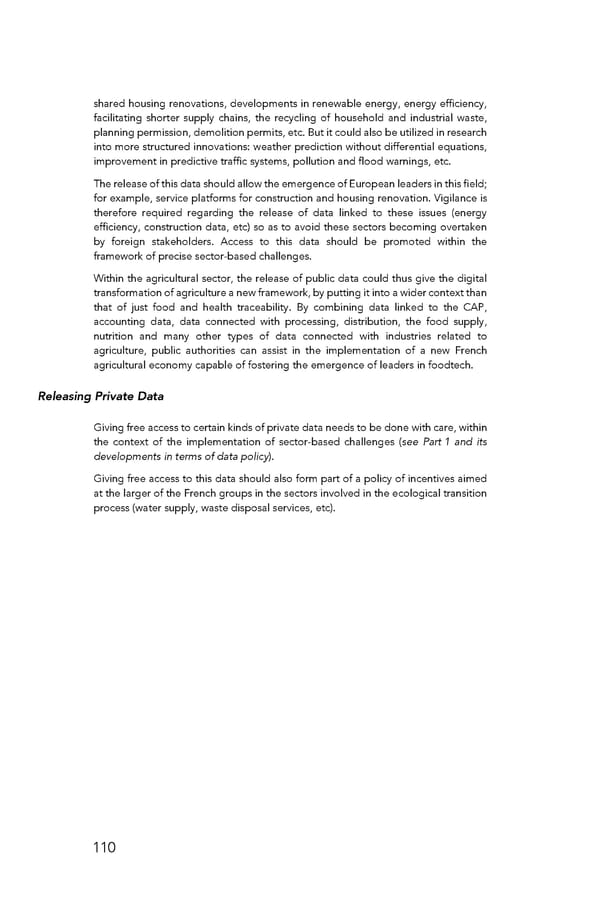shared housing renovations, developments in renewable energy, energy efficiency, facilitating shorter supply chains, the recycling of household and industrial waste, planning permission, demolition permits, etc. But it could also be utilized in research into more structured innovations: weather prediction without differential equations, improvement in predictive traffic systems, pollution and flood warnings, etc. The release of this data should allow the emergence of European leaders in this field; for example, service platforms for construction and housing renovation. Vigilance is therefore required regarding the release of data linked to these issues (energy efficiency, construction data, etc) so as to avoid these sectors becoming overtaken by foreign stakeholders. Access to this data should be promoted within the framework of precise sector-based challenges. Within the agricultural sector, the release of public data could thus give the digital transformation of agriculture a new framework, by putting it into a wider context than that of just food and health traceability. By combining data linked to the CAP, accounting data, data connected with processing, distribution, the food supply, nutrition and many other types of data connected with industries related to agriculture, public authorities can assist in the implementation of a new French agricultural economy capable of fostering the emergence of leaders in foodtech. Releasing Private Data Giving free access to certain kinds of private data needs to be done with care, within the context of the implementation of sector-based challenges (see Part 1 and its developments in terms of data policy). Giving free access to this data should also form part of a policy of incentives aimed at the larger of the French groups in the sectors involved in the ecological transition process (water supply, waste disposal services, etc). 110
 For a Meaningful AI - Report Page 110 Page 112
For a Meaningful AI - Report Page 110 Page 112